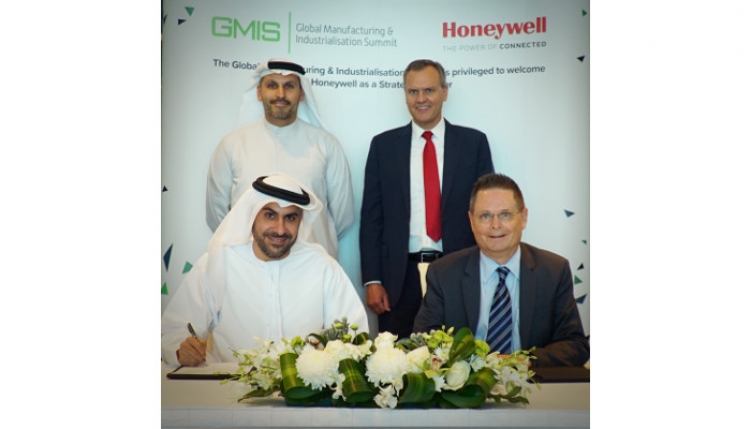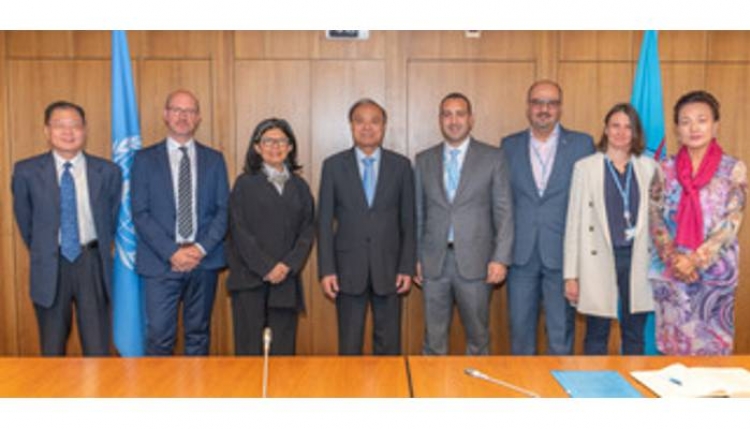Abu Dhabi - MENA Herald: The Global Manufacturing and Industrialisation Summit (GMIS) has announced Rockwell Automation, the world’s largest company dedicated to industrial automation and information, as its latest Industry Partner in a move that underscores the potential of the Industrial Internet of Things (IIoT) to drive productivity gains across all sectors of the global economy.
Rockwell Automation is world-renowned for innovative products that enable organisations to be more productive and sustainable. Since 1903, the company has established a legacy of technology leadership, with a focus on intensive innovation. Through its ‘The Connected Enterprise’ vision, which converges plant-level and enterprise networks while securely connecting people, processes and technologies, Rockwell Automation recognises that ‘smart’ manufacturing is the gateway to digital transformation – a central theme of an outcomes driven-agenda at the inaugural Global Manufacturing and Industrialisation Summit. In ‘The Connected Enterprise’, connected ‘smart’ devices open new windows of visibility into processes. Data and analytics enable better and faster decision-making, and seamless connectivity spurs new collaboration.
The Global Manufacturing and Industrialisation Summit is a global platform for participating attendees to learn from best practices from across the world, and to explore the impact of the Fourth Industrial Revolution (4IR) in which new technologies will transform the way we live, and the way manufacturing and industrial businesses operate. Establishing international standards and guidelines relating to emergent technologies is part of the Summit’s outcomes-driven agenda.
IIoT offers a chance to redefine sectors in the global economy and accelerate growth. Organisations are using IIoT for a variety of tasks, including saving energy in commercial buildings, guaranteeing crop yields and quality, and predicting production and distribution matrices. The technology is part of a new wave of transformation known as the Fourth Industrial Revolution, or 4IR, which is rewriting the rules of manufacturing and forcing organisations to create value through innovation.
IIoT and its current and future potential will be hotly debated at the Global Manufacturing and Industrialisation Summit being held at the Paris-Sorbonne Abu Dhabi, UAE, from March 27-30, 2017, under the patronage of His Highness Sheikh Mohamed bin Zayed Al Nahyan, Crown Prince of Abu Dhabi and Deputy Supreme Commander of the UAE Armed Forces. The Summit is the world’s first global gathering for the manufacturing community, bringing together 1,200 decision making leaders from governments, businesses and civil society organisations to shape a vision for the future. The Summit is a joint initiative by the UAE Ministry of Economy and the United Nations Industrial Development Organization (UNIDO) and is co-hosted with the Abu Dhabi Department of Economic Development.
Neil Enright, Regional Director Middle East and East Europe, Rockwell Automation, said: “The IIoT era has arrived. The proliferation of connected smart devices can improve virtually every aspect of business performance. That includes sharpened competitive edge, better productivity, and more seamless operating processes from people to plants. Rockwell Automation is committed to delivering solutions that are easily incorporated into industrial operations. Our collaboration with GMIS is an ideal platform for us to join a global dialogue that can generate solutions and help shape the future of manufacturing.”
“The relationship with Rockwell Automation is strategic and will help increase awareness of how IIoT can revolutionize products and processes across organisations and sectors,” said Badr Al-Olama, Chief Executive Officer, Strata Manufacturing, and Head of the Global Manufacturing and Industrialisation Summit Organising Committee. “IIoT offers a chance to redefine sectors of the global economy and accelerate growth.
To capitalize on this, organisations, including manufacturers, will need to redesign their business and operating models, and invest in new skills to enable machines and people to work seamlessly and smartly. All of this has the potential to transform manufacturing, creating value right across the global economy. It will yield improvements in productivity, operational efficiencies and outcomes.”




